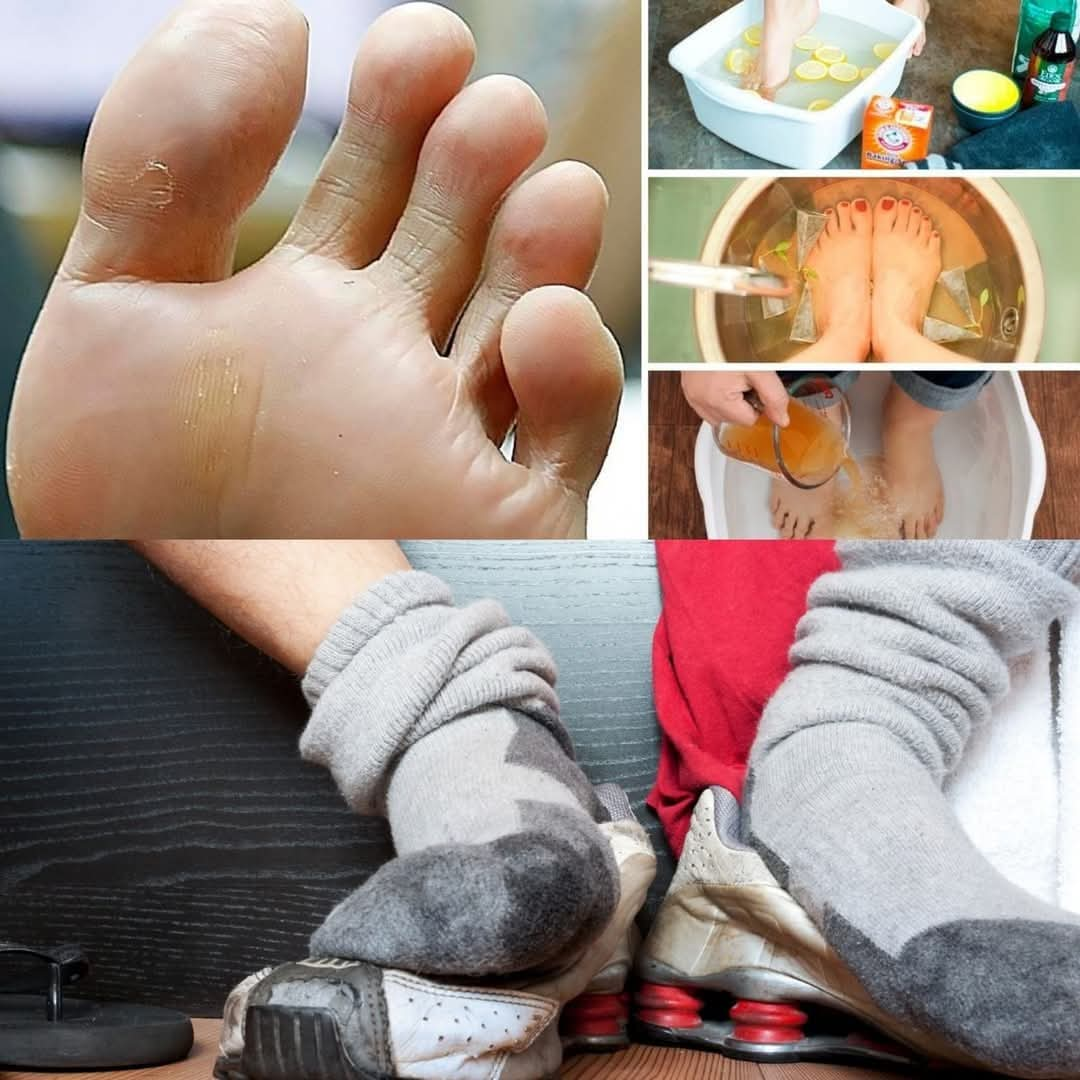ADVERTISEMENT
How to Get Rid of Smelly Feet for Good!
Smelly feet, also known as bromodosis, is a common issue that many people face, but it doesn’t have to be a part of your everyday life. The good news is that you don’t have to simply “live with it”—there are effective ways to prevent and eliminate foot odor for good. Whether it’s caused by sweat, bacteria, or fungus, there are several methods you can adopt to keep your feet fresh and clean.
In this article, we’ll explore the causes of smelly feet, as well as practical steps and tips you can follow to eliminate the odor and keep your feet feeling fresh all day long.
What Causes Smelly Feet?
Understanding the cause of smelly feet can help you address the problem more effectively. Feet have more sweat glands than any other part of the body, and they tend to sweat more than other areas. When sweat accumulates in shoes or socks, it creates the perfect environment for bacteria and fungi to thrive, which results in foul odors. Here are the most common causes of smelly feet:
- Excessive Sweating: The feet sweat a lot throughout the day, and if they aren’t allowed to dry, this sweat can create the ideal conditions for bacteria to grow, leading to odor.
- Bacteria and Fungus: Bacteria, like Brevibacterium, break down sweat and cause the unpleasant smell. Fungal infections, such as athlete’s foot, can also contribute to foot odor.
- Poor Foot Hygiene: If you don’t clean your feet regularly, dead skin cells and sweat can accumulate, leading to odors.
- Tight or Non-breathable Shoes: Shoes that don’t allow your feet to breathe trap moisture, making it easier for bacteria to grow.
- Certain Foods and Medications: Some foods (like garlic, onions, and spices) and medications can cause your body to release stronger odors through sweat.
How to Get Rid of Smelly Feet for Good
Now that we understand the causes, let’s explore the steps you can take to get rid of smelly feet for good.
1. Maintain Good Foot Hygiene
The most effective way to prevent foot odor is by maintaining good hygiene. Here’s what you can do:
- Wash your feet daily: Use warm water and mild soap to wash your feet every day, paying extra attention to areas between the toes. Dry your feet thoroughly with a clean towel to avoid excess moisture.
- Exfoliate: Exfoliate your feet once a week to remove dead skin cells, which can trap sweat and bacteria. You can use a pumice stone, foot scrub, or exfoliating foot mask.
- Change socks regularly: Choose socks made from breathable materials like cotton or wool. Change your socks at least once a day, and more frequently if you’ve been active or have sweaty feet.
2. Use Antiperspirants or Foot Powders
If your feet tend to sweat a lot, consider using antiperspirants specifically designed for feet. These products help to reduce sweat and prevent the buildup of moisture. You can find foot-specific antiperspirants or use regular antiperspirants in a pinch.
Alternatively, foot powders (such as talcum powder or baking soda) can help absorb moisture and keep your feet dry. Simply sprinkle a small amount into your shoes and on your feet before putting on socks.
3. Soak Your Feet
Foot soaks are a great way to freshen up your feet and kill odor-causing bacteria. Here are a few effective foot soak recipes:
- Epsom Salt Soak: Mix a few tablespoons of Epsom salt with warm water. Soak your feet for 15-20 minutes. Epsom salt helps to remove bacteria and fungus, while also soothing tired feet.
- Vinegar Soak: Mix equal parts white vinegar and water. The acidity of vinegar helps neutralize odors and fight bacteria. Soak your feet for 10-15 minutes.
- Tea Soak: Tea contains tannins, which have astringent properties that can help reduce foot sweating. Brew two to three black tea bags and soak your feet in the solution for 15-20 minutes.
4. Invest in Breathable Shoes
The shoes you wear play a big role in preventing foot odor. Tight, non-breathable shoes trap moisture and bacteria, leading to a buildup of unpleasant smells. Here’s what you can do:
- Choose breathable materials: Opt for shoes made from natural, breathable materials like leather or canvas. Avoid synthetic shoes that don’t allow for airflow.
- Alternate shoes: Don’t wear the same pair of shoes every day. Give your shoes time to dry out by rotating them, allowing them to air out between uses.
- Consider odor-resistant shoes: Some shoes are designed with antimicrobial properties that prevent the growth of odor-causing bacteria. These shoes can be particularly helpful for people prone to sweaty feet.
For Complete Cooking STEPS Please Head On Over To Next Page Or Open button (>) and don’t forget to SHARE with your Facebook friends
ADVERTISEMENT
ADVERTISEMENT
